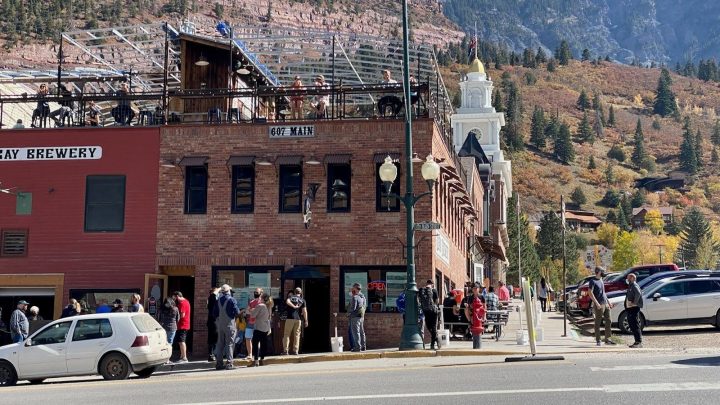
This Colorado brewery subsidized housing to attract workers
This Colorado brewery subsidized housing to attract workers

In the 1980s, rugged mountain terrain and a love for skiing brought Erin Eddy to Ouray, Colorado. “The outdoor pursuits are the reason that I moved down here,” Eddy said. “It’s one of the most beautiful places in the United States.”
The remote mining town — sometimes called the “Switzerland of America” — is a destination for hikers, mountain bikers and other outdoor enthusiasts. But over the past few years, Ouray’s beauty has been a curse for residents seeking affordable housing.
“When COVID hit the U.S., there became a surge of like outside real estate interest,” said Eddy, who owns a restaurant and brewery in town. “With the proliferation of like short-term rentals, [like] VRBO and Airbnbs, the long-term rental housing market here began to dry up.”
Like many mountain communities, a surge of remote workers flooded into Ouray from bigger cities during the pandemic, buying up property and increasing demand for short-term rentals.
“My employees started to be displaced from their long-term living situations,” Eddy said.
One of Eddy’s employees, who has a young daughter and works as a teacher in addition to bartending, was displaced from three homes in three years. “She just kept getting bounced from one rental to the next,” he said. “The more and more of those types of long-term rentals disappear, the more frustrated employees become as they get displaced, and they eventually just leave the area.”
To cope with fewer employees, Eddy reduced hours at the brewery. He also began leasing properties through his business to provide subsidized housing for workers. “I think at one point, we had about 17 or 18 bedrooms under rent,” he said.
Initially, offering subsidized housing helped attract some workers. “And then, over time, what I’ve noticed the trend is that those people would live here for a year … and realize that they could never afford to own a home in our area and they began to leave.”
Stuck with the bill on the long-term rentals he leased for employees, Eddy said he’s been paying out about $5,000 a month in rent on empty units for much of this fall.
“That adds up quick,” he said. “Especially with inflation and the employees that you do that you do have asking for higher wages.”
Despite that, Eddy insists there are reasons for optimism. “As people became more aware in the community that there was a housing and staffing crisis going on, some groups popped up that started taking some positive steps to help solve the problem.”
Last year, a group of private employers bought a local hotel to house their workers. More long-term solutions are in the works as well; this September, crews broke ground on an affordable housing development in Ouray County and submitted plans to Ouray’s Town Council for another.
“I think it’s like everything … things swing one way and then five or seven years later, they’ve swung in a completely different direction,” Eddy said. “Hopefully, with some of the housing options that are coming online, some of these people may be able to buy houses and stay here and enjoy the quality of life that our county provides.”
Click the audio player above to hear Eddy’s story. Tell us your housing story using the form below, and you may be featured on a future edition of “Adventures in Housing.”
There’s a lot happening in the world. Through it all, Marketplace is here for you.
You rely on Marketplace to break down the world’s events and tell you how it affects you in a fact-based, approachable way. We rely on your financial support to keep making that possible.
Your donation today powers the independent journalism that you rely on. For just $5/month, you can help sustain Marketplace so we can keep reporting on the things that matter to you.












